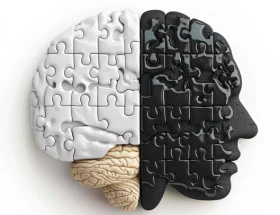This post reviews a study conducted by Floyd, McGrew, and Evans (2008), which examines the relationship between cognitive abilities outlined in the Cattell-Horn-Carroll (CHC) framework and writing achievement in school-aged children. By analyzing how different cognitive skills influence basic writing skills and written expression, the study sheds light on the specific abilities that contribute to writing development during childhood and adolescence.
Background
The Cattell-Horn-Carroll (CHC) model is a widely recognized framework in psychology that categorizes cognitive abilities into broad and narrow domains. Writing, a fundamental skill in education, relies on a variety of cognitive processes. Floyd et al. aimed to identify which CHC cognitive abilities have the most significant impact on writing skills, using data from the Woodcock-Johnson III (WJ III) assessment.
Key Insights
- Comprehension-Knowledge: This ability showed consistent moderate to strong effects on both basic writing skills and written expression across most age groups.
- Processing Speed: The study found moderate effects on basic writing skills and moderate to strong effects on written expression, highlighting its importance in efficient writing tasks.
- Short-Term Memory and Long-Term Retrieval: Short-term memory showed moderate effects across all age levels, while long-term retrieval played a more significant role in younger children, particularly for basic writing skills.
- Auditory Processing: This ability, including phonemic awareness, demonstrated moderate effects on written expression at younger and older age levels.
- Fluid Reasoning and Visual-Spatial Thinking: Fluid reasoning showed moderate effects on both writing clusters at older age levels, whereas visual-spatial thinking had minimal impact overall.
Significance
The findings of this study highlight the cognitive abilities that play the most significant roles in writing achievement during school-age years. By understanding these relationships, educators and researchers can develop more targeted approaches to improve writing skills in children and adolescents. This research also emphasizes the importance of considering age-related differences in cognitive development when designing interventions and instructional strategies.
Future Directions
The study raises questions about how these cognitive abilities can be effectively enhanced to support writing achievement. Future research could explore interventions that strengthen specific cognitive skills, such as processing speed or auditory processing, and examine how these improvements translate to better writing outcomes. Longitudinal studies could also provide a deeper understanding of how the role of these abilities evolves over time.
Conclusion
This research by Floyd, McGrew, and Evans provides valuable insights into the cognitive underpinnings of writing achievement. By identifying the most influential abilities, it opens the door for more effective educational practices and highlights the importance of tailored approaches to writing instruction that align with a child’s cognitive profile.
Reference
Floyd, R. G., McGrew, K. S., & Evans, J. J. (2008). The relative contributions of the Cattell-Horn-Carroll cognitive abilities in explaining writing achievement during childhood and adolescence. Psychology in the Schools, 45(2), 132-144. https://doi.org/10.1002/pits.20284










